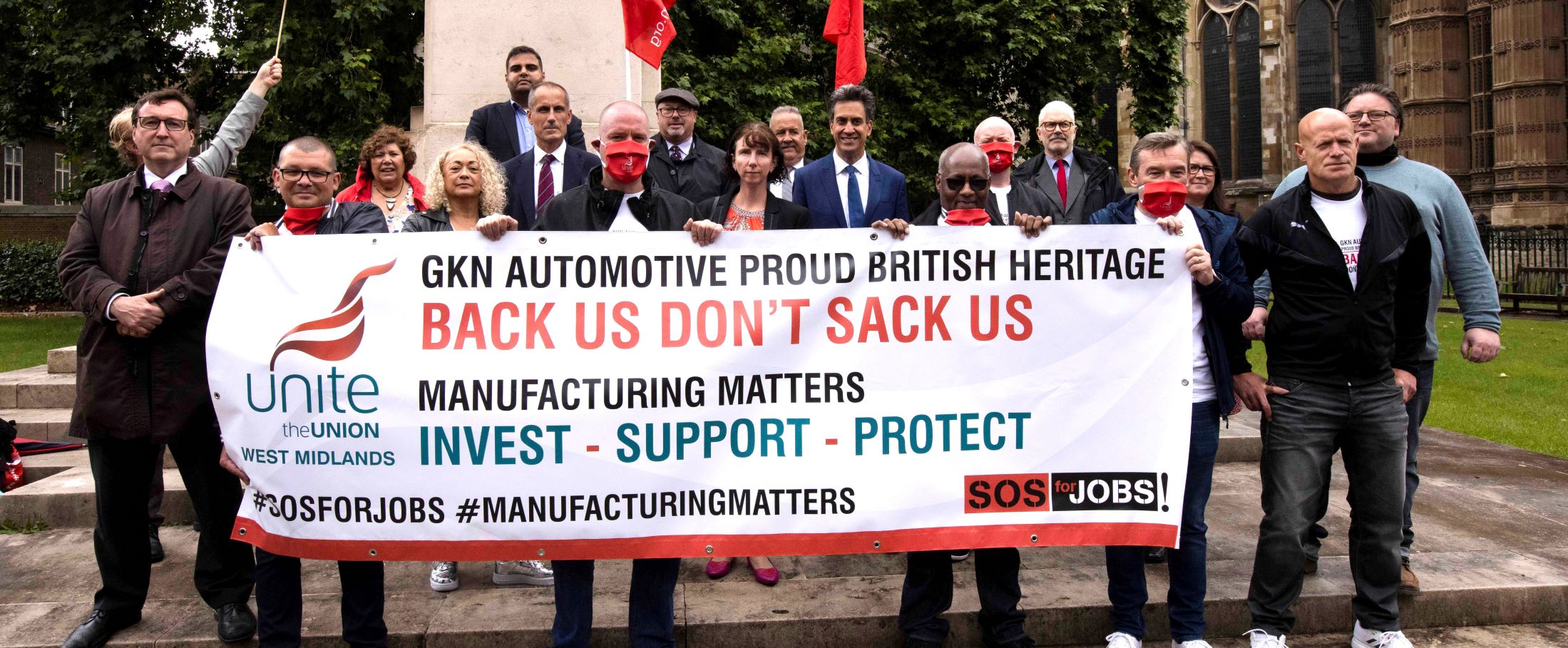For males only?
A cross-party committee of MPs released a damning report today (March 22) into the government’s inadequate response to a yawning 20 per cent gender pay gap that’s showed no signs of abating over the last four years.
The committee called for the government to adopt more decisive measures to tackle the gap, including offering flexibility to all workers unless there was a strong business case against, as well as improving productivity and wages in low-pay sectors, where most women are often pushed into.
The report also highlighted what’s called â€occupational segregation’ as a main driver of the gender pay gap – women are often discouraged from entering higher-paid, traditionally male-dominated industries.
That’s why Unite has campaigned to get more women into science and engineering apprenticeships – it launched a guide in conjunction with Labour MP Gloria de Piero last year.
Unite young member Amy Sensor is one engineering apprentice who works at manufacturing firm Brush, mainly testing turbo generators. She shares with UNITElive her story.
“I left school at 16, unsure of what I wanted to do, but knowing that I didn’t want to go down the conventional route of A-Levels followed by university, as personally I didn’t want the debt.
“Fortunately, during one of my school’s â€careers evenings’, I was informed about the â€National Apprenticeship Scheme’ online where you can search for and find thousands of apprenticeship vacancies. This means that I was able to find the opportunities available, attend interviews and be selected for Brush within about three months.
“However, it is now the standing joke in my house that my dad started my career off for me.
“See, I was one of these females that believed that engineering was solely for males and therefore before I’d even applied, Dad had to ring Brush to confirm that they would even consider taking on a female!
“It is only now that I am within this industry that I understand the many different avenues covered under the â€umbrella’ of engineering, for example drawing, assembling and manufacturing.
“One of my main concerns is that there are plenty of other females out there that have the ability and skill required to perform such engineering tasks, but that they are also under the impression that it is for males only.
“Truth be told, it is a male-dominated environment, but that will only change with time as more females see what a great career choice it can be. I understand that I have been fortunate enough to enter into a â€proper apprenticeship’. By this, I mean that I am paid a decent wage and learning transferrable skills with a high possibility of being employed at the end, alongside working towards decent qualifications (HNC/HND).
“However, this doesn’t mean that I haven’t seen the challenges that young people face. People I know have chosen apprenticeships that offer little or no training, are on short-term contracts and are poorly paid — the National Minimum Wage apprentice rate is now just ÂŁ3.30 an hour.
“Many of my peers have chosen to go to university and are currently being exploited in low-pay, zero hours jobs, as their employer knows that they need the money to get through university.
“Apprenticeships shouldn’t be seen as an â€easy route’, but more as just as much of an option as university is seen. Schools should be trying to promote apprenticeships as much as they do university and also try to breakdown the stereotypical views that I myself have encountered such as, â€Females go into hair & beauty and males do engineering’.
“My main job onsite is to test turbo generators. However, within my career so far I have also been given the chance to weld, machine and wind.
“I feel fortunate to have been given fantastic opportunities but saddened by the fact that other young women are missing out due to poor careers advice at school and society’s gender bias. Employers should be investing in apprentices, paying them a decent wage and giving them the tools and opportunities to help develop their organisation.
“In doing this, it is mutually beneficial for all.”
Read more stories from Unite young women apprentices here.
 Like
Like Follow
Follow


